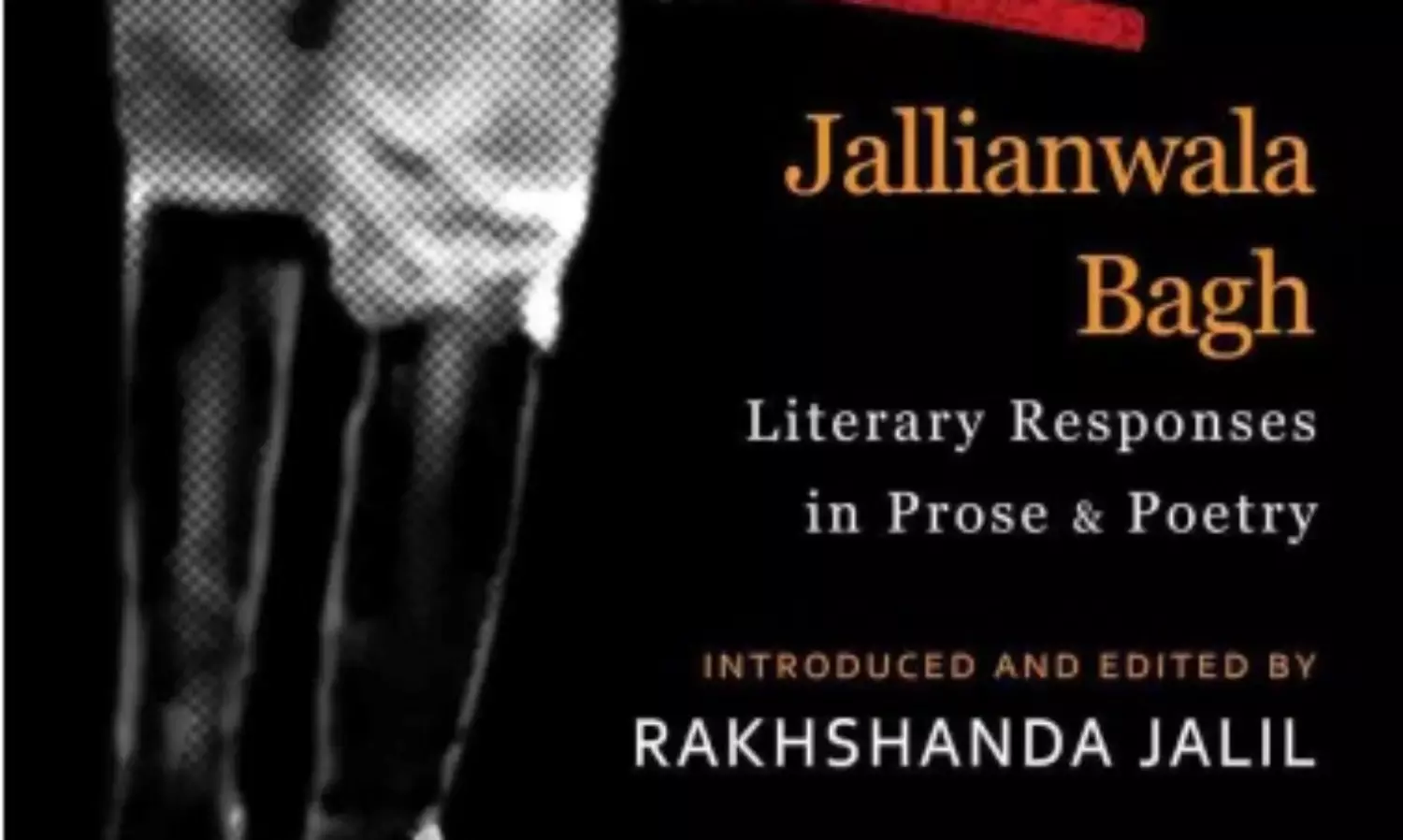The Impact of Jallianwala Bagh Massacre on Poetry and Literature In This One Century
100th anniversary of the Jallianwala Bagh tragedy

Rakshanda Jalil, a noted writer, editor, translator and activist, in celebration of those who had laid down their lives at the Jallianwalla Bagh Massacre, has put together a volume highlighting India’s cultural and creative response to this unpardonable, inhuman and brutal act against humanity.
Though Brigadier General Reginald Dyer was shot and killed by a patriot Udham Singh in London some years later, this does not reverse the man-made killing enacted through calculated intention. What impact did it have on creative thinkers, artists, poets and litterateurs of India? ‘Jallianwala Bagh: Literary Responses in Prose & Poetry’ edited by Rakhshanda Jalil, and published by Niyogi Books, Delhi, brings this to us.
“It is very important to revisit times of great pain and suffering and to go back to old memories that have caused immense anguish. Would we do what was done at great human cost yet again? Did the pain, suffering and sacrifice go to waste? Surely it ought not to. The intersection of history and literature allows us to revisit occasions of great historical import. I have looked at the literature that came out of the First War of Independence of 1857, the Indian participation in the First World War (1914 – 1918) and the literary responses to it, and the Partition of 1947. Each time, my attempt has been to evaluate how contemporary and later writers looked at these real life incidents through the prism of literature. The volume is a continuation of that attempt,” says Jalil in an interview.
The volume comprises 11 works of fiction — one of which is a play — and poetry, the genres placed in two separate sections. The works are powerful in terms of the characterisation of the men and women who people it and rich in terms of treatment, language, style and approach. Some of them have been translated by Rakshanda from the original Urdu into English .
There is one story by Sadat Hasan Manto called Thaila Kanjar retold in the story by a narrator. Kanjar, he claims, was the very first victim of the Jallianwalla Massacre who became a much-venerated martyr when his body was brought from the field. Before that, he was dismissed as a wastrel and humiliated for being the son of a courtesan. The story drives home the point that for people like Kanjar and his two sisters who make their living out of servicing men, reaches far beyond nationalism and a patriotic fervour that turned their brother into a martyr. It lends itself to a deeply feminist reading. The name of the story is An Incident from 1919.
Amritsar, Before Independence is an excerpt from Krishan Chander’s Amritsar, Azadi Se Pehle, Azadi Ke Baad that is translated by Raza Naeem. He calls women “the very embodiment of virtue” because they are “domesticated women, veiled women” almost screaming out the writer’s and the story’s underlined patriarchy.
Those Who Crawled by Ghulam Abbas has been translated from the original Urdu by Jalil. The story revolves around the decree through the Martial Law established by the British Government following the massacre that ordered whoever wanted to cross the lane in which Sherwood had been assaulted to crawl on their bellies. The story unfolds how two young men in their teens began to cross the lane on their bellies. But when they are about to start their third round of crossing speeding up their crawl, the White sergeant thought they were defying their orders and threatens to shoot them down. The young men tell him that they were only trying to race each other!
Josh Malihabadi’s ‘An Address to the Sons of the East India Company’, translated from Urdu by Jalil, recounts the entire history of atrocities by the British till Jallianwala happened. Sohan Singh Misha’s poem, ‘The Bullet Marks’, translated from Punjabi by Jasdeep Singh and Amarjit Chandan, is a visually rich description of the positioning of Jallianwala Bagh and a description of the massacre.
Another excerpt is from Chaman Lal’s The Crown and the Loincloth in which General Dyer is an important character. As he discusses his plan to fire directly at the crowd gathered at Jallianwalla Bagh with Kenneth Ashby, Assistant Commissioner of Amritsar that one of the grounds of firing was that the Sikh men had beaten up and humiliated British women!
But to sum up, one must point out that Jallianwalla Bagh was neither the first nor the last of a human massacre by the powerful, the arrogant, the affluent and the dominant.
Only, sometimes, we call these acts of terrorism which recognizes neither language nor religion nor caste or class. The list will need the volume of a thick book. Let us take a close look – hundreds of Sikhs butchered following the assassination of Indira Gandhi; the 2002 Gujarat pogrom; the gang rape and mass murder of innocent Muslims wholly unrelated to Godhra, the violent and brutal killings of Mohammad Akhlaque, Junaid, Pehlu Khan and Afrazool and not to forget – the killings of Narendra Dhabolkar, Kalburgi, Goviind Pansare and Gouri Lankesh. “Psychological terrorism, when not killings, can be as revolting as terrorism which does not begin and end in Pulwama,” writes Kajal Chatterjee.
So, contrary to what Theodore Adorno in his 1949 essay, Cultural Critcism and Society” said that “there can be no poetry after Auschwitz” there can be poetry, and plays and novels and stories where, according to Jalil, “for ‘new age’ poets, language is a means, not an end to a creative exercise.”



